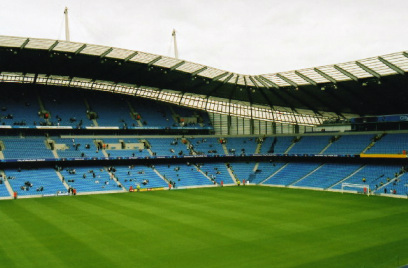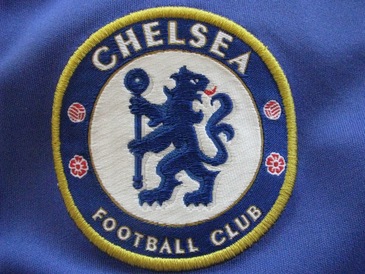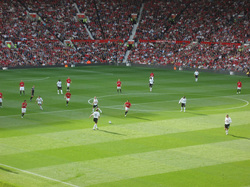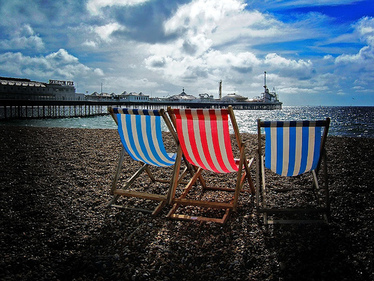
The success of Manchester City last season led to inevitable accusations that they had bought the title thanks to cash from their new owner. City, however, are only one of many clubs in the Premiership that have relied on a rich injection of cash from a wealthy benefactor to fund a spending spree that has led to sporting success. Is such a business model inevitable? Is it advisable? Is it desirable? And is it even sustainable?
Risky business and costly players
All the statistical know-how and technical wizardry of investment analysts such as SunGard APT (http://www.sungard.com/apt) could help you to conclude that buying a football club is a risky business. You can read up on calculating risk for investments with this additional information.
Firoz Kassam, former owner of Oxford United, famously commented that ‘if anybody wants to go into football thinking it's a business then that is a big mistake, and I would say don't do it. Football is a hobby; it's not about making money.’
Recent figures show even Premier League clubs still failing to show significant profits, despite record attendances and ever-increasing broadcasting rights. In lower leagues the situation is worse, with clubs often spending at least a third more than they are actually earning.
The main spend, it will come as no surprise, is on ever escalating player’s wages and transfer fees of astronomical proportions.
Kassam outspokenly labelled as madness the situation where a player in the second or third division can command a salary that would have big city bankers looking askance at their latest pay check.
The latest analysis reveals that players’ wages alone account for about 80% of top clubs' turnover, and can be over 100% of turnover for smaller clubs. To put this in perspective, any business operating outside of football would be considered to be in trouble if its wage bill rose to over 65% of its turnover.
All the statistical know-how and technical wizardry of investment analysts such as SunGard APT (http://www.sungard.com/apt) could help you to conclude that buying a football club is a risky business. You can read up on calculating risk for investments with this additional information.
Firoz Kassam, former owner of Oxford United, famously commented that ‘if anybody wants to go into football thinking it's a business then that is a big mistake, and I would say don't do it. Football is a hobby; it's not about making money.’
Recent figures show even Premier League clubs still failing to show significant profits, despite record attendances and ever-increasing broadcasting rights. In lower leagues the situation is worse, with clubs often spending at least a third more than they are actually earning.
The main spend, it will come as no surprise, is on ever escalating player’s wages and transfer fees of astronomical proportions.
Kassam outspokenly labelled as madness the situation where a player in the second or third division can command a salary that would have big city bankers looking askance at their latest pay check.
The latest analysis reveals that players’ wages alone account for about 80% of top clubs' turnover, and can be over 100% of turnover for smaller clubs. To put this in perspective, any business operating outside of football would be considered to be in trouble if its wage bill rose to over 65% of its turnover.

Wealthy benefactors
The ascendancy of clubs like Manchester United, and more recently Chelsea and Manchester City, has proved beyond doubt that a club that benefits from a wealthy benefactor can win titles. But at what cost?
United finds itself straddled with debt and other clubs must literally pay the price for the inflationary effect on wages that a sudden injection of cash has. UK football’s increasing reliance on what amounts to a rich fan’s charity rather than any sustainable business acumen has seen more than 40 insolvencies from clubs in lower leagues since 1992. What can be done?
The ascendancy of clubs like Manchester United, and more recently Chelsea and Manchester City, has proved beyond doubt that a club that benefits from a wealthy benefactor can win titles. But at what cost?
United finds itself straddled with debt and other clubs must literally pay the price for the inflationary effect on wages that a sudden injection of cash has. UK football’s increasing reliance on what amounts to a rich fan’s charity rather than any sustainable business acumen has seen more than 40 insolvencies from clubs in lower leagues since 1992. What can be done?

Various rescue plans and new business models have been proposed for football. The following address the wage situation without confronting ownership. A wage cap on players would free up much-needed investment in other areas from ailing clubs.
Having larger teams invest in academies hosted at lower league clubs would provide a pool of players for the Premier League and new players for lower leagues.
There is a model that has already been proved to encourage financial stability and massive investment in grassroots football. The German Bundesliga's 50+1 model addresses ownership by ensuring that majority shareholders in football clubs are its supporters.
Since its introduction in Germany average attendances are up to 42,000 (20% higher than in the UK), ticket prices are 50% cheaper, clubs are ran profitably and there is always a good variety that win the major trophies.
It seems that in business models for football, as with technical know-how for cars, the Germans might be saying ‘vorsprung durch technik.’
Having larger teams invest in academies hosted at lower league clubs would provide a pool of players for the Premier League and new players for lower leagues.
There is a model that has already been proved to encourage financial stability and massive investment in grassroots football. The German Bundesliga's 50+1 model addresses ownership by ensuring that majority shareholders in football clubs are its supporters.
Since its introduction in Germany average attendances are up to 42,000 (20% higher than in the UK), ticket prices are 50% cheaper, clubs are ran profitably and there is always a good variety that win the major trophies.
It seems that in business models for football, as with technical know-how for cars, the Germans might be saying ‘vorsprung durch technik.’
Resources
The latest Sport Business Group Report on UK football
Review the highlights of the latest review of the state of the UK’s football business
Wealthy benefactors and UK football
Read an incisive account from Forbes of the impact of wealthy benefactors on UK football
Why debt-laden football needs restructuring
Find out what the Guardian proposes needs doing to make the football business sustainable
The latest Sport Business Group Report on UK football
Review the highlights of the latest review of the state of the UK’s football business
Wealthy benefactors and UK football
Read an incisive account from Forbes of the impact of wealthy benefactors on UK football
Why debt-laden football needs restructuring
Find out what the Guardian proposes needs doing to make the football business sustainable




 RSS Feed
RSS Feed